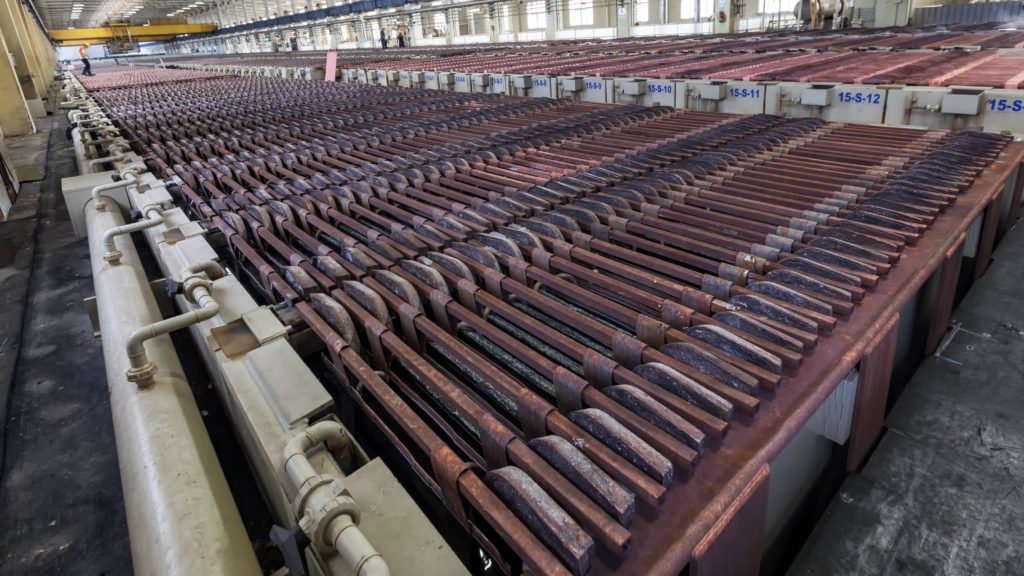Copper sinks to two-month low on China’s plan to release reserves

This pushed the dollar to its highest in two months, making commodities priced in the greenback more expensive and less appealing to holders of other currencies.
Copper for delivery in July fell 3.2% from Wednesday’s settlement price, touching $4.24 per pound ($9,332 per tonne) Thursday midday on the Comex market in New York.
Three-month copper on the London Metal Exchange (LME) fell 2.2% to $9,456.50 a tonne in official trading, after earlier hitting its lowest since April 23 at $9,415.
Freeport McMoRan led losses among miners under pressure as copper prices tanked. The Phoenix-based stock dropped 6.9% in early trade, with a 16% weekly decline.
Southern Copper was down 5%, with a 12% weekly decline. BHP Group shed 4.4%. Rio Tinto skidded 2%.
Click here for an interactive chart of copper prices
The last time China sold its metal reserves was in 2010 when markets were also rebounding from a global crisis.
The administration, which does not publish its reserve volumes, is estimated by Citigroup to hold 2 million tonnes of copper, 800,000 tonnes of aluminum, and 350,000 tonnes of zinc.
That is equivalent to one-sixth — or two months’ worth — of China’s annual refined copper consumption, based on estimates for 2020 from state-backed research house Antaike, but only around 2% of its aluminum usage and 5.2% of its annual zinc consumption.
“The trigger for prices has been the Fed and the Chinese saying they will release copper, ali and zinc into the market,” independent consultant Robin Bhar told Reuters.
“The Fed indicated it may have to hike rates sooner than they had originally anticipated and that’s dealt a blow to gold and to the metals as well.”
“The copper market is going to have to live with the threat of Chinese state sales for the foreseeable future,” said Reuters columnist Andy Home.
Related article: Andy Home: Learning to live with (talk of) Chinese state metal sales
“We haven’t seen the country release state reserves for years,” Jia Zheng, a commodity trader with Shanghai Dongwu Jiuying Investment Management Co told Bloomberg.
“This will boost short-term supply, sending a bearish signal to the market.”
Goldman Sachs said last month the country’s efforts are likely to be in vain as China is no longer the buyer dictating pricing, with the price dip a clear buying opportunity.
Colin Hamilton, an analyst at BMO Capital Markets, told the Financial Times it was unlikely that China would release significant amounts of metal into the market.
“I think this is another bit of rhetoric to message the Chinese market that they think prices should be lower.”
(With files from Bloomberg and Reuters)




